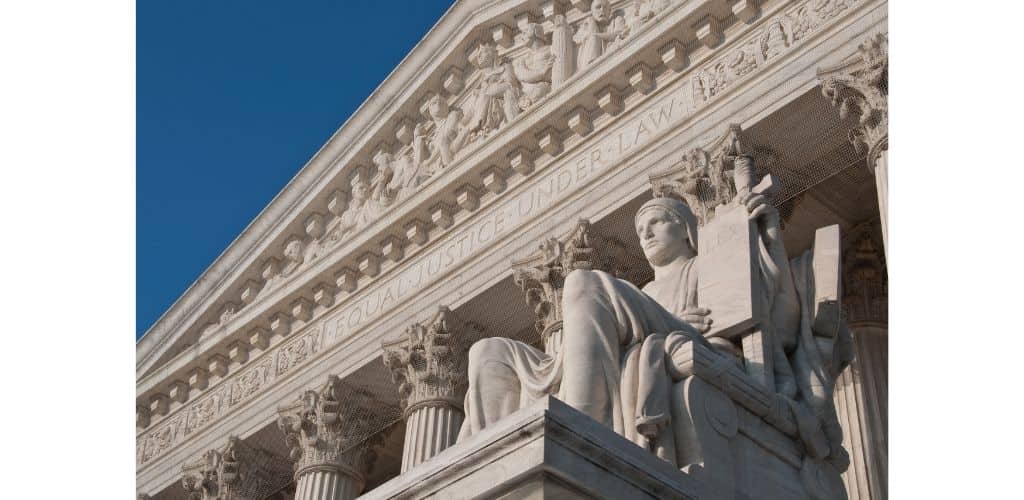The US Supreme Court has denied cert on several cases involving patents and trademarks, meaning that the Court will not consider the appeals and the lower court rulings will stand.
As Cornell Law School explains,
A writ of certiorari orders a lower court to deliver its record in a case so that the higher court may review it. …
Certiorari is generally associated with the writ that the Supreme Court of the United States issues to review a lower court’s judgment. A case cannot, as a matter of right, be appealed to the U.S. Supreme Court. As such, a party seeking to appeal to the Supreme Court from a lower court decision must file a writ of certiorari.
In the Supreme Court, if four Justices agree to review the case, then the Court will hear the case. This is referred to as “granting certiorari,” often abbreviated as “cert.“
The cases are summarized below.
Eolas Technologies v. Amazon.com
Eolas was started in the mid-1990s to commercialize early internet technologies. Eolas’s patent infringement claims against companies like Amazon and Google were invalidated in the Northern District of California as directed to a patent-ineligible abstract idea under 35 U.S.C. § 101.
On appeal, the Federal Circuit found that “interacting with data objects on the World Wide Web is an abstraction,” and thus not patentable under §101.
In its petition for cert, Eolas stressed the many requests for the Supreme Court to clarify the Section 101 eligibility test.
Chestek PLLC v. Vidal
In 2019, the US Patent and Trademark Office (USPTO) issued a final rule that required trademark applicants to disclose their domicile address on their applications.
Chestek PLLC, a trademark law firm, challenged the refusal by the USPTO of its own trademark applications for failure to list a domicile address, citing privacy concerns.
The Federal Circuit affirmed the USPTO’s refusal.
Cellect LLC v. Vidal
After Cellect sued Samsung Electronics over image-sensor technology, Samsung requested ex parte reexamination of Cellect’s patents, including three that received patent term adjustments (PTA) under 35 U.S.C. § 154(b) due to the USPTO’s delay in prosecuting the patent applications.
Cellect’s patent claims were invalidated during the ex parte reexamination for “obviousness-type double-patenting” (ODP or OTDP).
The Federal Circuit recently held that, when an inventor has two patents claiming obvious variants of the same invention, the ODP doctrine can invalidate the later-expiring patent.
This doctrine ensures that patent owners can’t unfairly extend their patent term. However, since patents within a patent family are similar, extending the term for one patent within a family can invalidate it under the OTDP doctrine.
The Federal Circuit found that Cellect could have avoided the ODP invalidations if it had filed terminal disclaimers on the patents at issue.
As the USPTO explains,
A terminal disclaimer is a statement in which a patentee or applicant disclaims or dedicates to the public the entire term or any terminal part of the term of a patent or patent to be granted (filed in an application).
Cellect contended in its petition for cert that the Federal Circuit’s ruling created unreasonable uncertainty in patent term length that patentees can only overcome by preemptively filing terminal disclaimers even when unnecessary.
Provisur Technologies v. Weber, Inc.
The Federal Circuit, in Weber, Inc. v. Provisur Technologies, Inc., vacated rulings by the Patent Trial and Appeal Board (PTAB) involving validity challenges by grill maker Weber against Provisur’s commercial food slicer patent claims.
The PTAB had concluded that Weber’s operating manuals were not available to the public and thus didn’t qualify as prior art publications because they had been distributed to only ten customers under confidentiality restrictions.
The Federal Circuit found that when a publication’s purpose is “dialogue with the intended audience,” that purpose indicates public accessibility.
Just like the haiku above, we like to keep our posts short and sweet. Hopefully, you found this bite-sized information helpful. If you would like more information, please do not hesitate to contact us here.


